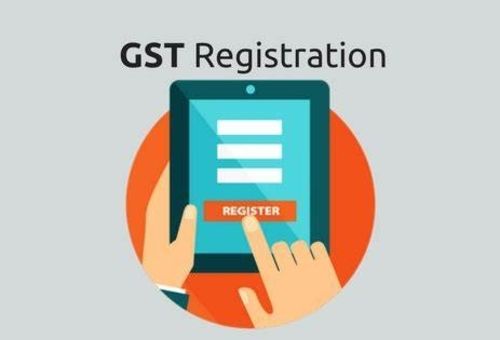Improving Your Singapore GST Registration: An Extensive Method
Improving Your Singapore GST Registration: An Extensive Method
Blog Article
The Ultimate Overview to Streamlining the GST Registration Refine and Requirements for Local Business Owners

Comprehending GST Essentials
To comprehend the fundamentals of the Product and Services Tax (GST) system, local business owners need to initially comprehend its underlying principles and implications. GST is a value-added tax levied on many products and solutions for residential consumption. It aims to streamline the taxation process by replacing numerous indirect taxes imposed by the state and central federal governments. Under the GST program, businesses are required to sign up and collect tax on behalf of the federal government, making sure openness and compliance.
Among the vital concepts of GST is input tax obligation credit rating, which allows businesses to declare credit score for tax obligations paid on their acquisitions. This system protects against the plunging result of tax obligations and promotes efficiency in the tax obligation system. Furthermore, GST is a destination-based tax obligation, suggesting that the tax obligation is imposed at the point of intake instead than the factor of origin. This ensures reasonable circulation of tax revenue among states based upon where the goods or services are consumed. Recognizing these standard principles is vital for little organization proprietors to browse the complexities of the GST system and make certain compliance with the law.
Eligibility Criteria for Enrollment
Having actually established a fundamental understanding of GST concepts, tiny service owners have to now meet specific qualification criteria to continue with the enrollment process. In India, entities took part in the supply of products or services with a yearly accumulation turn over going beyond Rs. 40 lakhs (Rs. 10 lakhs for unique classification states) are called for to register for GST. In addition, particular organizations such as those associated with inter-state supply of products, casual taxable persons, and those required to pay tax obligation under the reverse cost mechanism have to sign up for GST regardless of their turnover. Companies that were signed up under the previous tax obligation program (BARREL, service tax obligation, etc) are also mandated to sign up under GST. However, agricultural organizations that just provide produce out of key production are exempt from GST enrollment. It is critical for entrepreneur to carefully examine their eligibility based upon these criteria to ensure conformity with the law and prevent any charges for non-compliance.
Records Required for GST Registration

Simplified Registration Refine Steps
Complying with the collection and verification of the requisite records, the enrollment process for GST can be navigated via a collection of streamlined steps created to promote effective compliance for small company owners. The very first step entails checking out the GST portal and picking the 'New Registration' option. Consequently, the applicant has to fill up in Component A of the GST REG-01 type with details such as frying pan, mobile number, and email address to get an OTP for verification. As go to this site soon as the OTP is gotten and entered, a Temporary Reference Number (TRN) is produced for further proceedings. The next step needs completing Component B of the form with necessary service details, submitting supporting papers, and finishing the verification procedure utilizing DSC or EVC. Upon successful verification, an Application Referral Number (ARN) is issued, suggesting the conclusion of the GST enrollment process. By complying with these streamlined actions, small company proprietors can successfully sign up for GST and guarantee conformity with tax obligation regulations.
Tips for Ensuring Compliance
To preserve regulative adherence and functional honesty, attentive oversight and proactive measures are critical in guaranteeing compliance with GST requirements for local business owners. Local business reference proprietors have to remain upgraded with GST guidelines, submitting due dates, and any changes in tax obligation prices to prevent charges and preserve a good standing with tax authorities. One vital idea for compliance is to keep detailed and exact records of all transactions, consisting of receipts, expenditures, and invoices associated with GST. Consistently integrating monetary documents with GST returns can aid in determining and fixing any type of disparities without delay. Furthermore, conducting periodic inner audits or seeking specialist assistance can make sure that business is adhering to all GST guidelines appropriately. It is also vital for small company proprietors to purchase GST-compliant bookkeeping software program that can improve the tax obligation declaring procedure and reduce mistakes. investigate this site Last but not least, attending GST recognition workshops or training programs can enhance understanding and compliance with GST guidelines, inevitably profiting the company in the long run.
Verdict
In verdict, tiny service owners should comprehend the fundamentals of GST, meet the eligibility standards, collect needed papers, and comply with the simplified registration procedure actions to guarantee compliance. By simplifying the GST enrollment procedure and demands, little business proprietors can prevent penalties and operate their companies smoothly within the legal structure - Singapore GST Registration. It is important for small organization proprietors to stay compliant and enlightened with GST policies to maintain a successful organization operation
Tiny service owners looking for GST registration have to ensure they collect and submit the essential papers to complete the enrollment process effectively. The documents needed for GST registration commonly include evidence of service registration or unification, PAN (Irreversible Account Number) card of the company entity, address and identity evidence of the promoters/partners/directors, photos, address evidence of the area of company, bank account declarations or canceled cheques, and consent kinds. Going to GST recognition workshops or training programs can enhance understanding and conformity with GST laws, ultimately profiting the organization in the long run.
By simplifying the GST enrollment procedure and requirements, little service proprietors can avoid penalties and run their organizations smoothly within the legal framework. It is vital for tiny business owners to stay enlightened and certified with GST policies to preserve an effective service procedure.
Report this page